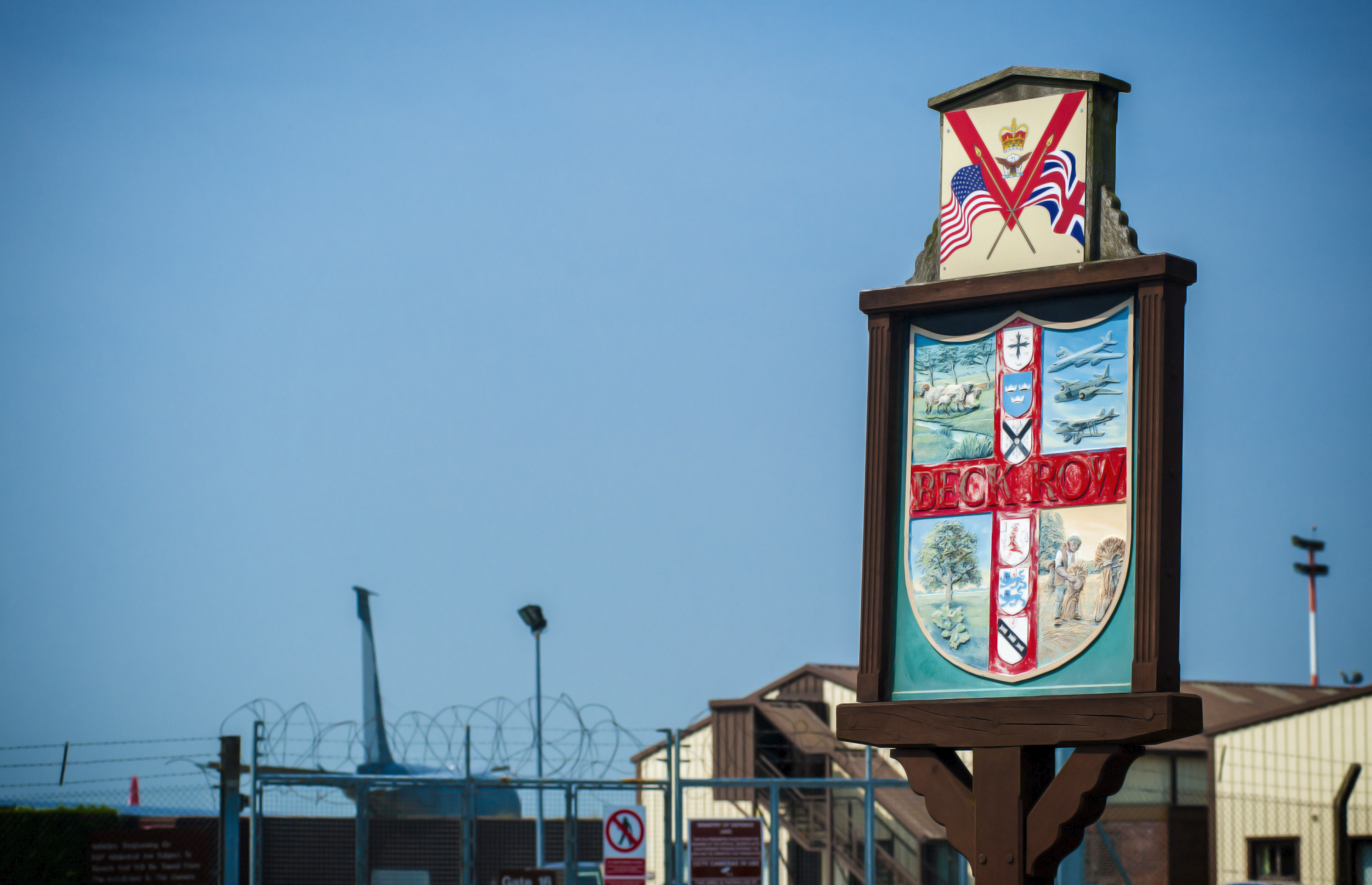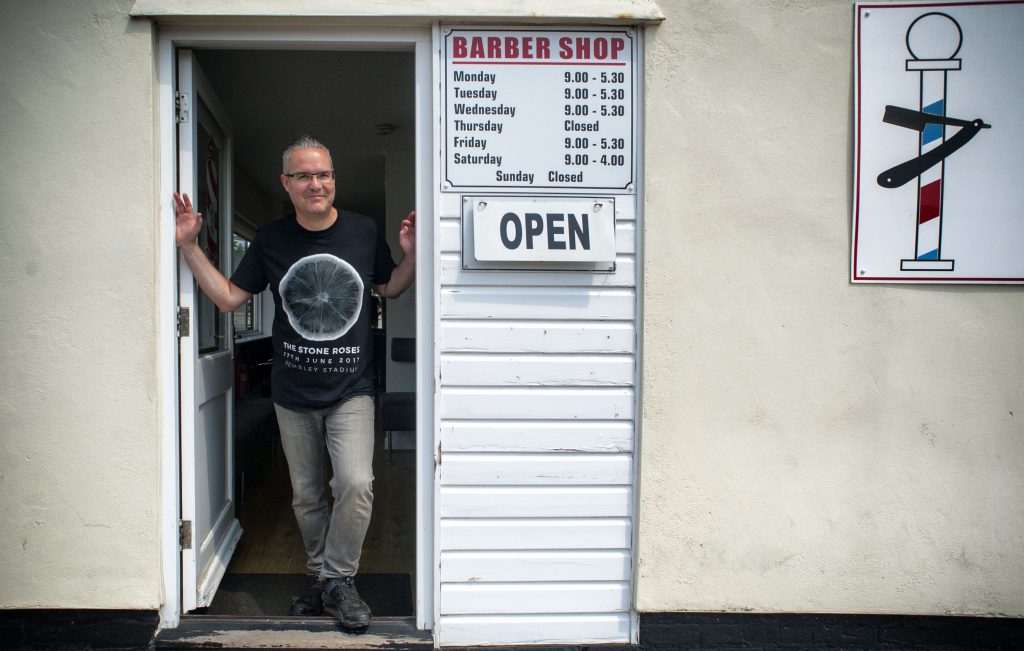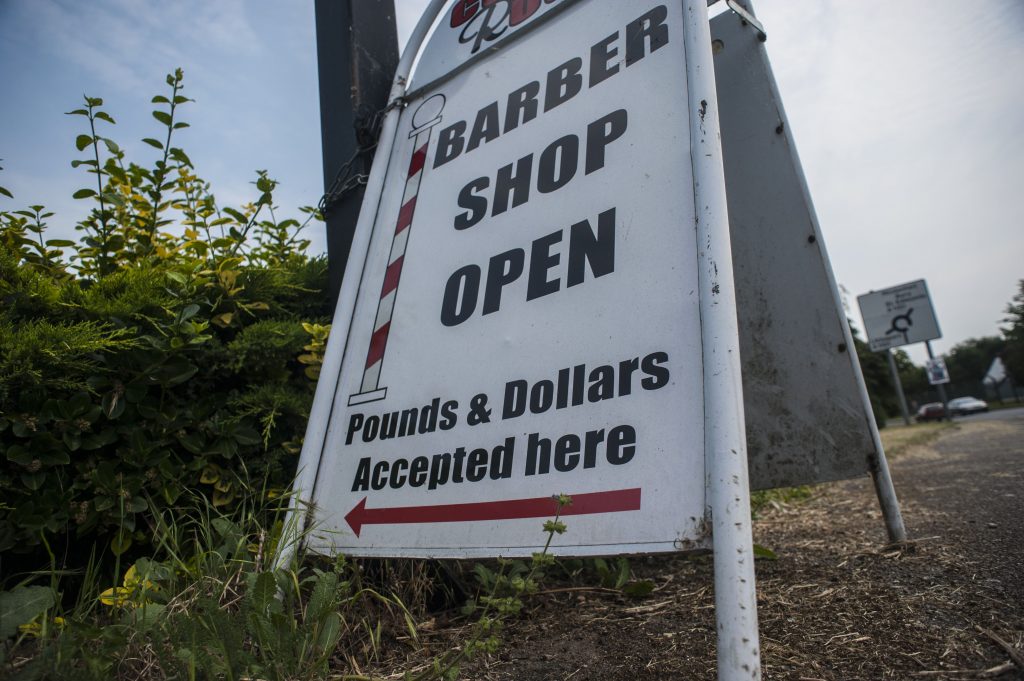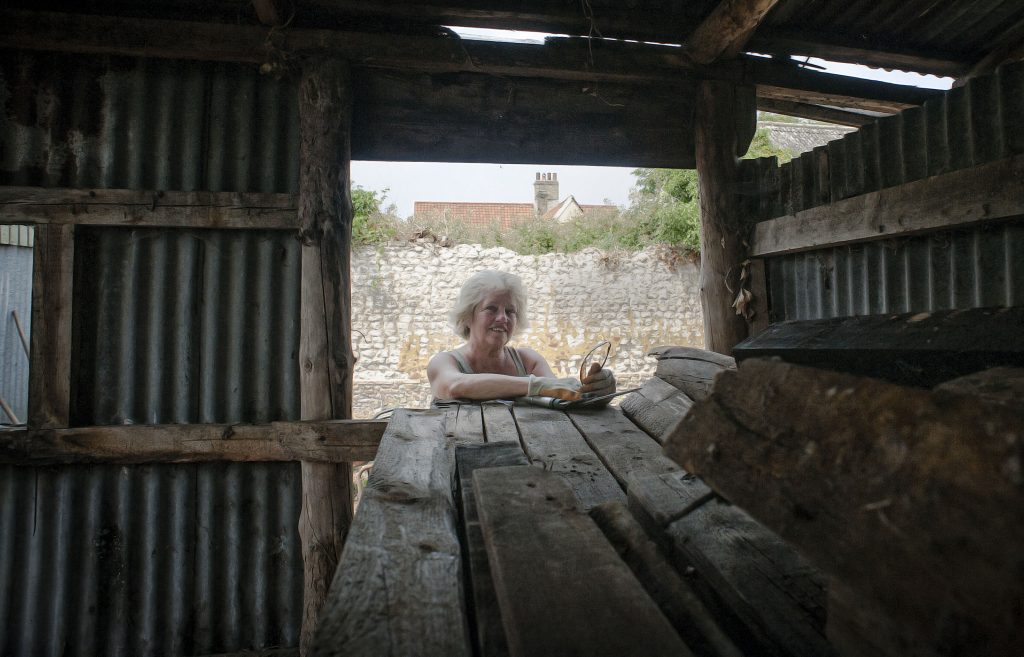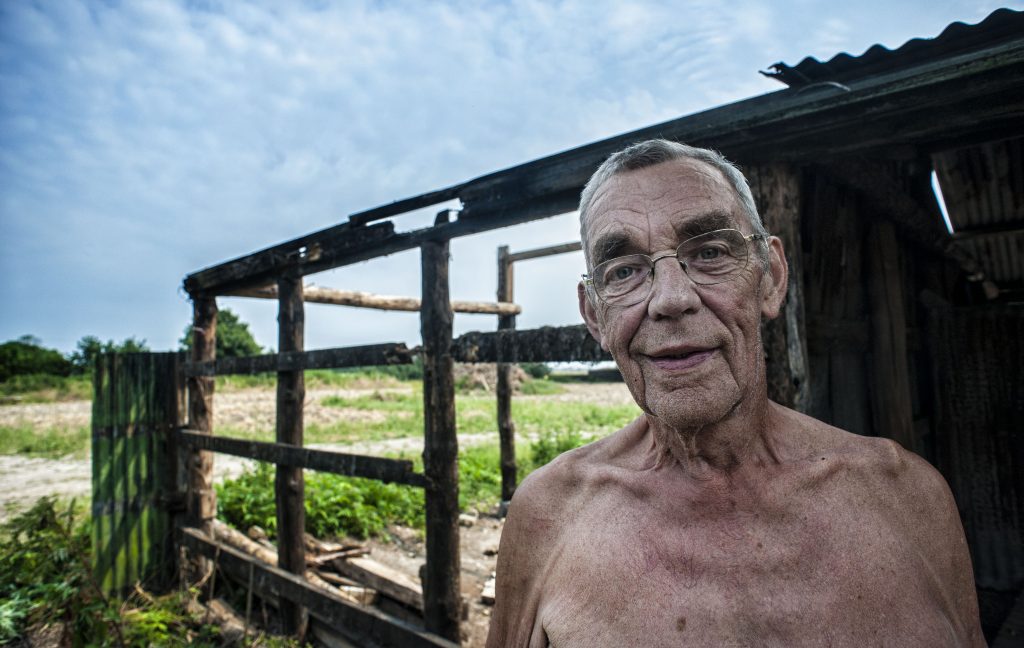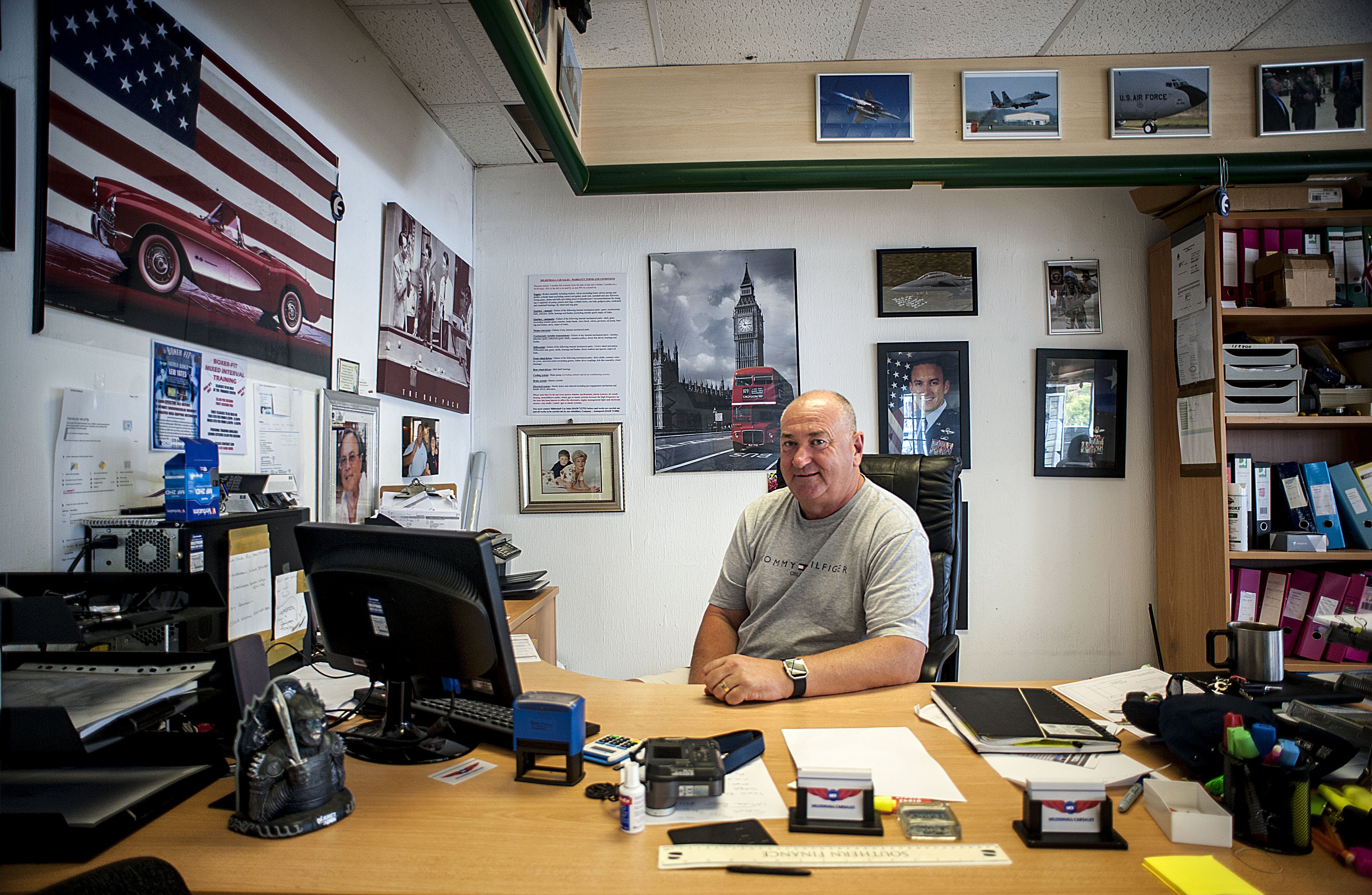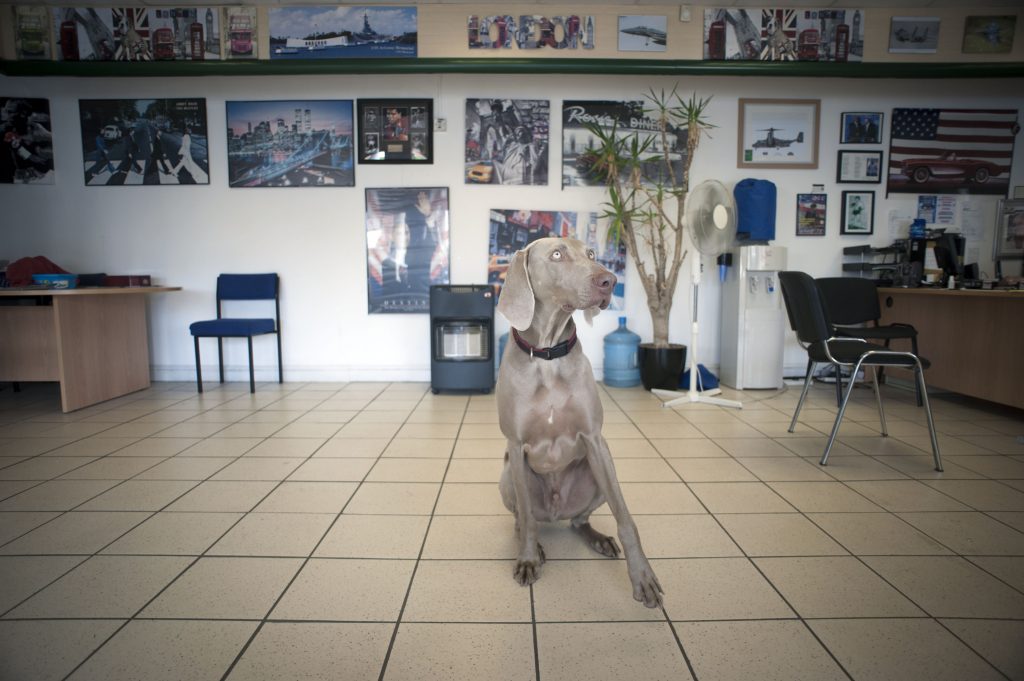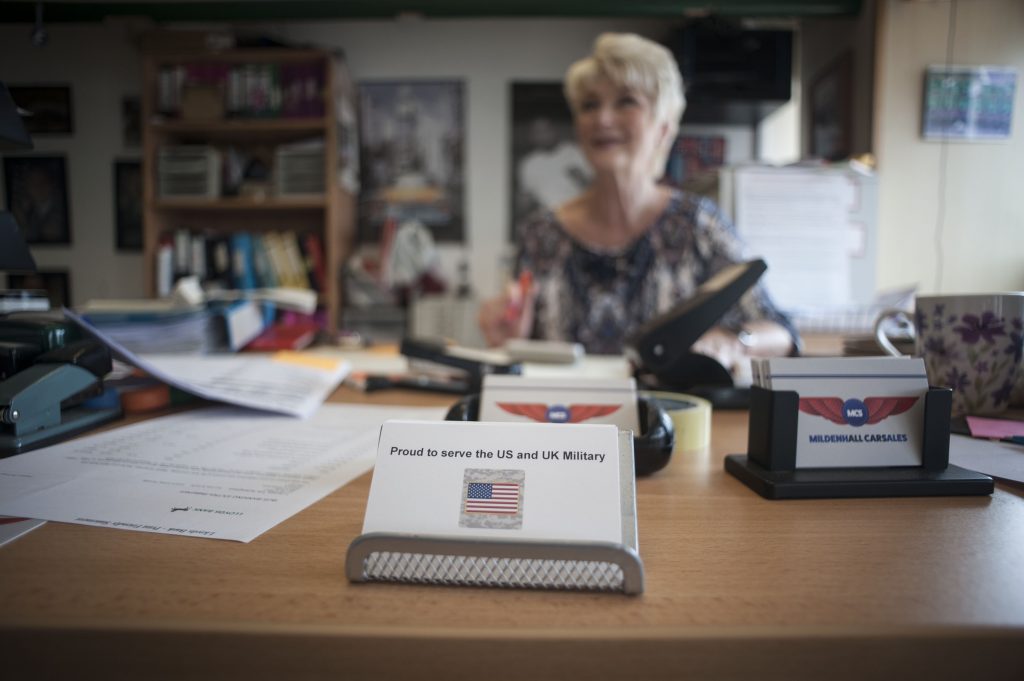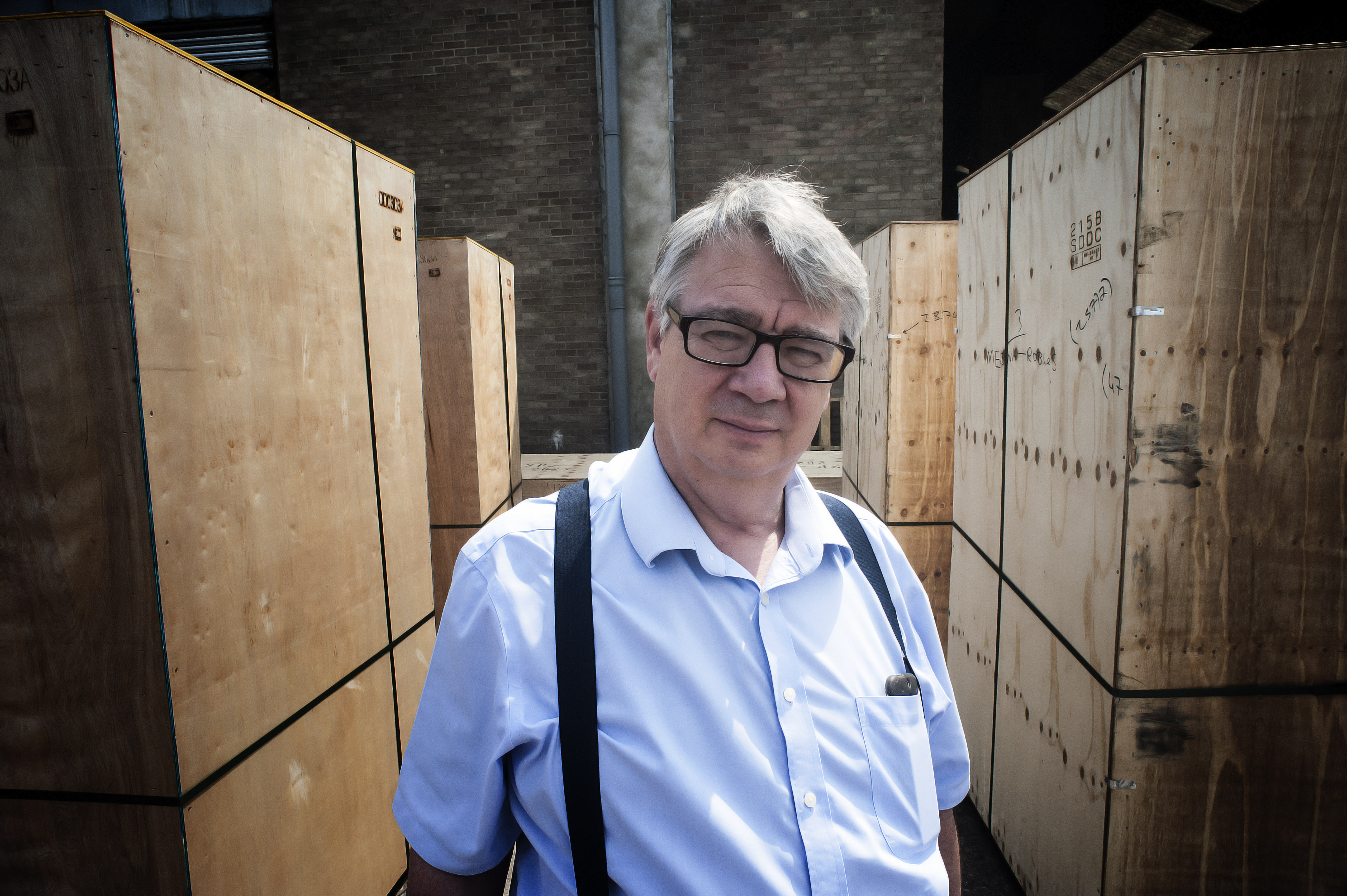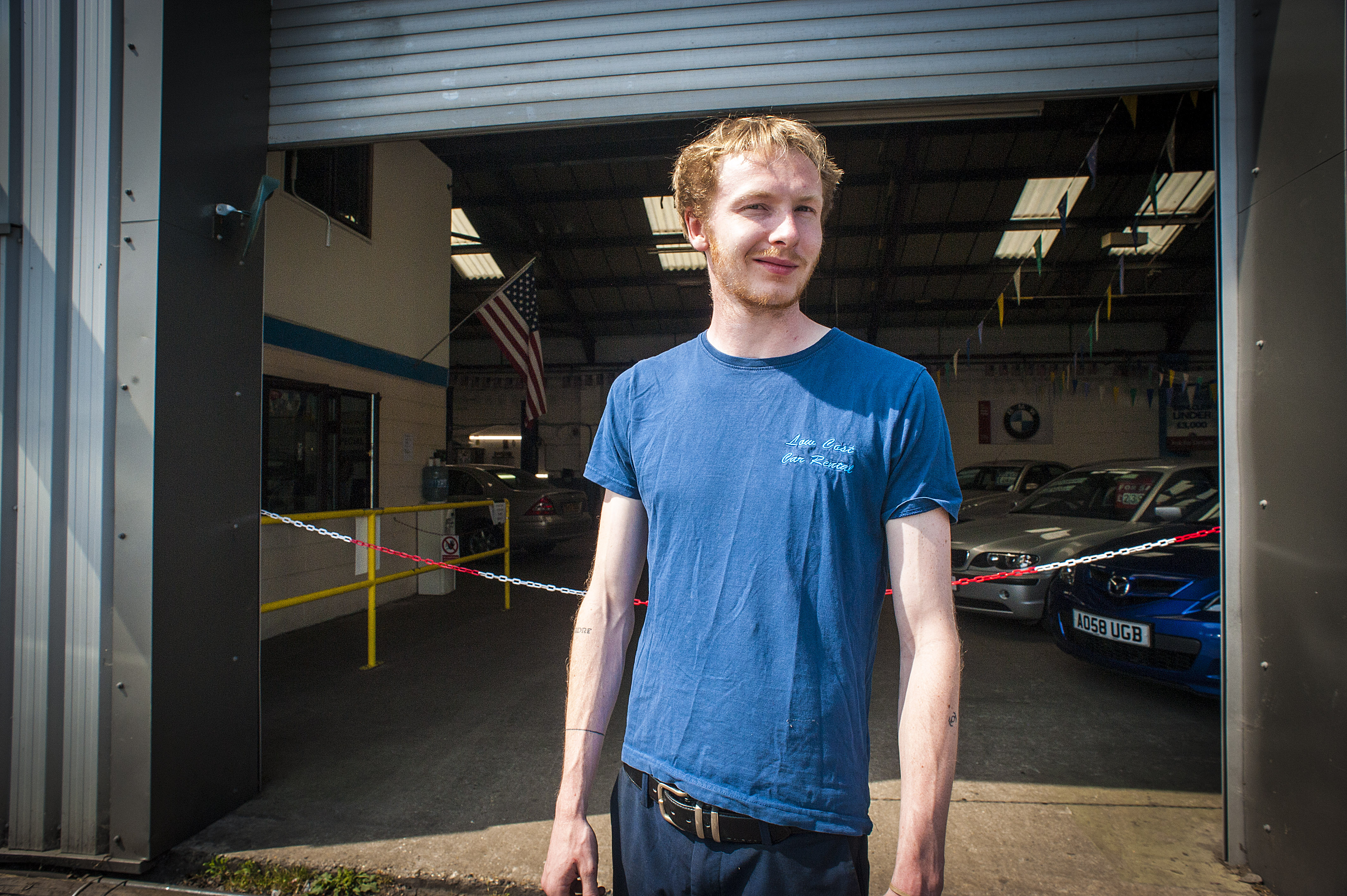‘Little America’: Where the Stars and Stripes fly high
Many years ago, when I worked in Suffolk, I had an idea for a feature about the peculiarly American feel of north west Suffolk. Yes, it is home to the USAF bases at Mildenhall and Lakenheath.
But the cultural, social and monetary reach extended far beyond the gates and fences of the bases. With July 4 in mind, a few weeks I finally set about doing something about writing that long-imagined piece. It was a great experience to work on it with a colleague, who brought a fresh vision and voice to my work.
The end product, which attracted about 1.4m unique views, was a stripped down version of the original. So, here’s the original – for anybody who fancies it.
With its picturesque villages and quiet country lanes, the county of Suffolk embodies a vision of a certain kind of Englishness. Yet nestled away in its north-western corner lies a pocket of pure Americana, where the cars are suddenly huge, you can pay for a haircut in dollars and the Stars and Stripes flutter proudly. Welcome, this Independence Day, to “Little America”.
The accent is unmistakably American.
The man, elderly, slightly hunched but with a freshly cut short-back-and-sides, hauls himself out of the black leather barber’s chair and places some money in Steve Snazell’s palm.
“Until next time,” he says, heading out of the door with a sense of purpose honed from years in the military.
“He’s a regular,” says Mr Snazell, a second generation barber whose shop sits directly opposite the wired fence of RAF Mildenhall.
The American community here was established here during World War Two and the years immediately afterwards when the US military coagulated into a crescent of RAF bases that stretch across southern England from Lakenheath in Suffolk to RAF Fairford in Gloucestershire.
West Suffolk is home to both RAF Lakenheath and Mildenhall, with RAF Feltwell perched just over the Norfolk border to the north.
In the past seven decades, tens of thousands of US military personnel, their spouses and their children have set up home in this Suffolk enclave for postings lasting between between two and four years.
“The young ones are so polite – it’s all yes ma’am, no ma’am.”
The United States Air Force in Europe claims RAF Laknheath and Mildenhall are worth a combined £700m ($910m) to the local economy. The influence of the American dollar stretches far and wide – from the local property rental market to the pubs and restaurants, where US patrons are noted for eating out earlier than their British counterparts.
About half of all Mr Snazell’s customers are Americans – either those currently serving in the military, or retirees who have settled in the area.
Recent years have ushered in a subtle revolution in the follicular topography of his American clients, he says.
The “high and tight” haircut, so traditional of the US military, has been largely replaced by a simple short-back-and-sides, or the intriguingly named “local”.
To have a “local” is to have one’s hair cut in the manner of a typical west Suffolk native, one that will prevent its bearer being noticeably American. It is, says Mr Snazell, one of the more unusual responses to the fear of being targeted in a terror attack.
The cost of a “high and tight” or a “local” is £8 – though Mr Snazell is equally happy to take payment in dollars ($12).
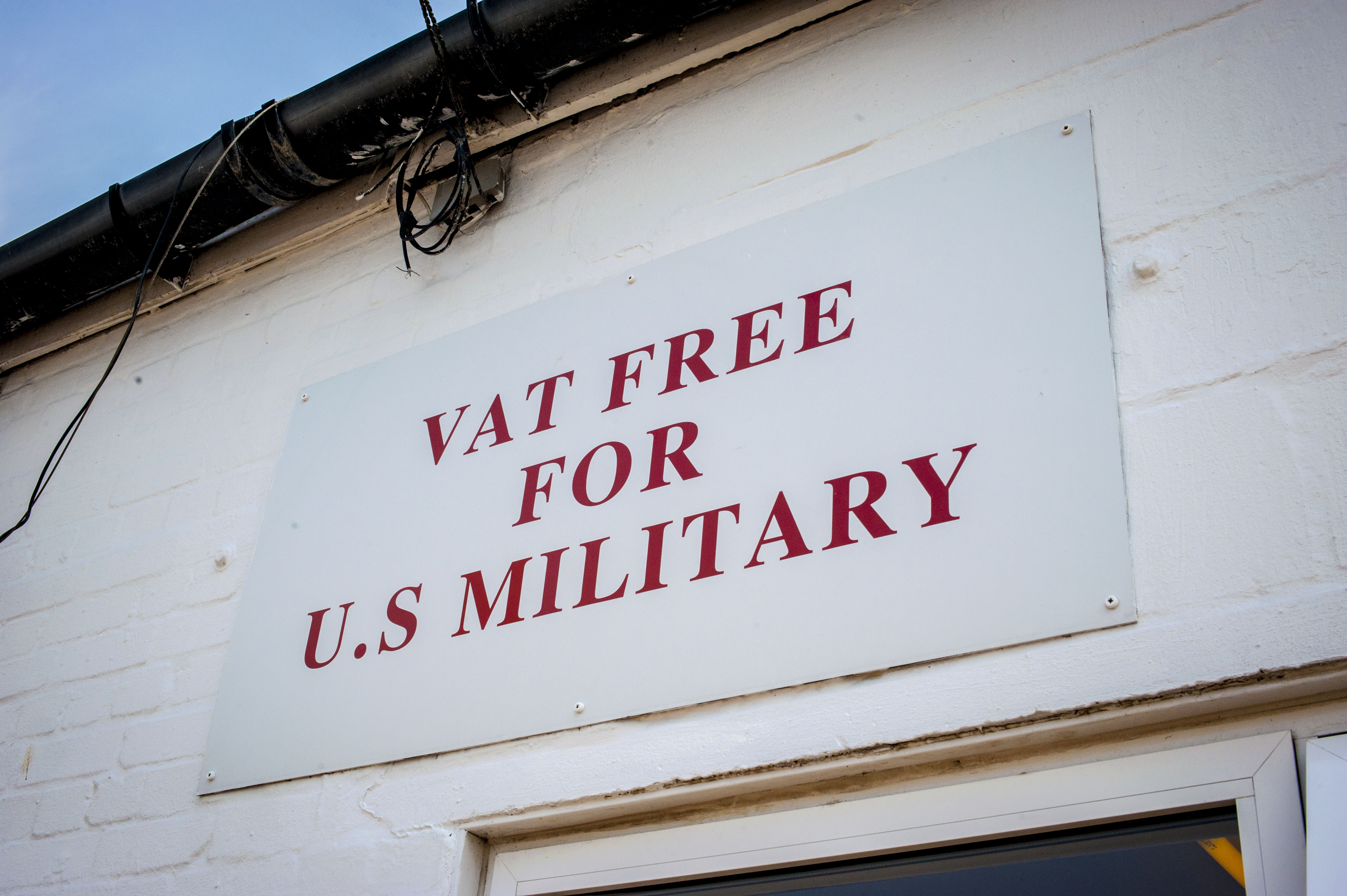
One of the current batch of Americans living in the area is Jolene Jeffers, an aspiring photographer currently working for a car rental company.
She and husband Caleb, originally from Albuquerque, New Mexico, are almost three years into a four-year posting. He works on the Lockheed C-130 Hercules at RAF Mildenhall.
“It is a different experience but still a really cool one,” she says of life in west Suffolk.
“Sometimes I just want to go to Walmart at 03:00 for ice cream and socks, and you can’t do that here.
“I miss home but it’s amazing to be so close to London and to Paris.
“It’s very small compared to what I’m used to, but Suffolk is so cosy and the people are so nice.”
Such appreciation is reciprocated by retiree Rosalind Hamill, who is one of the thousands of British people to have made a living working on the the bases.
In earshot of a slate-grey Hercules C-130 refuelling tanker in slow turn, Mrs Hamill is rolling up her sleeves and sets to work turning a derelict corner of a field off Jarman’s Lane into a community garden.
Called the Shed Project, Mrs Hamill’s vision will be built upon a microcosm of the “special relationship”.
A group of American volunteers will be joining her to clear the broken bricks, remove weeds and renovate the ramshackle outbuildings.
“We’ve always worked together, the base and the local community,” says Mrs Hamill, a West Row councillor who left school aged 15 to work at RAF Mildenhall,
“The young ones are so polite – it’s all yes ma’am, no ma’am.”
And then there are the Americans who have not only settled into, but embraced, village life, she says.
One of them, Brian, is widely lauded across West Row for growing the best sweetcorn in the area.
“People have to accept there’s an American airbase here, that sometimes they’ll go round the roundabout the wrong way,” she says.
Sometimes, they end up in your family, as 76-year-old Suffolk native Terence Grinling found out.
Mr Grinling started on base as an electrical contractor before being made a permanent member of staff at RAF Mildenhall.
“I enjoyed every minute of it – so much so that when I reached retirement age I did an extra four years there.”
As well as a living, the base gave him a son-in-law in the form of Kenneth, from Ohio.
“He did not want to go back to the US and Hayley (his daughter) did not want to leave,” says Mr Grinling. “So they settled here and live with my grandson William in Red Lodge.”
Even without a family connection, the bonds between Americans and this little corner of Suffolk can be strong and long-lasting.
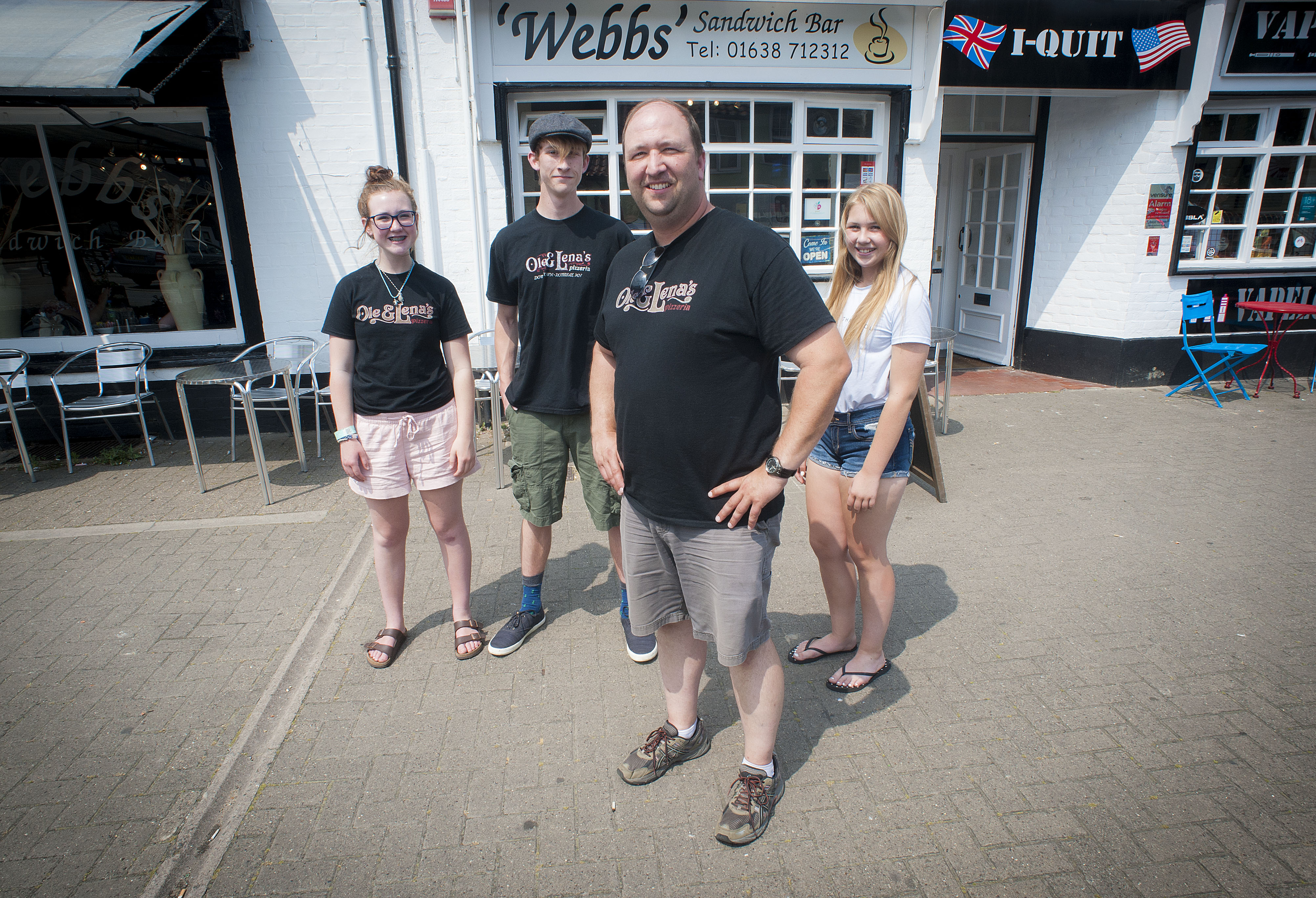
Steve Balkan runs a pizzeria in Rothsay in Minnesota.
But 13 years ago he was stationed at RAF Mildenhall, leaving with the rank of major.
When he bumped into us he was emerging from Webb’s sandwich shop in the centre of Mildenhall.
“Webb’s was my favourite place, the food was fantastic,” he says, having introduced its charms to his partner Karie and his three children.
His younger daughter Chase, 13, was actually born at RAF Lakenheath.
“You have to remember nothing is familiar to them here – even mince pies at Christmas time.”
“This was by far the best assignment in my whole air force career,” he said.
“We love the Brits, the sense of humour. And the countryside around here is so beautiful.
“I’ve always wanted to come back and show the kids where they came from.”
Talk to people in this area of Suffolk and the conversation will at some stage invariably turn to cars.
Huge American Chevrolets, Fords and Chryslers are commonplace. But driving left-handed cars along Suffolk’s often narrow winding roads can prove problematic.
So much so, in fact, that the USAF tells its service personnel driving in the UK is “a challenge” and that they are not allowed to overtake other vehicles within a certain distance of the base.
The speed limit on the Eriswell Road – which connects RAF Mildenhall with nearby RAF Lakenheath – was cut from 60mph to 40mph in 2015 after it emerged this single stretch accounted for more than half of the 61 traffic accidents involving airmen between 2012 and 2014.
Terry James, who runs Mildenhall Car Sales with his stepson Mike, says many of the airmen pop into their showroom for advice about negotiating Suffolk’s roads.
Within is a wall-to-wall celebration of the best of British and American: the flare-wearing Beatles crossing Abbey Road, a framed Osprey helicopter print – a gift from the base – the night glow of a Manhattan skyline.
Portraits of Mildenhall’s senior military staff share the spotlight with Mohammed Ali, Steve McQueen and Barack Obama.
As well as selling cars – nearly all automatic – to the Americans, Mr James’s staff prepare US cars for the roads in the UK and for their MOTs.
But many Americans have an ulterior motive for visiting Mr James’s car showroom: his dog, a velvety grey three-year-old Weimaraner called Charlie.
Most service personnel have to leave their pets at home. For many Charlie has become a much-loved surrogate.
Terry’s wife Sylvia, who helps with the office admin, says the airmen and their families feel a “strong sense of belonging” in their offices.
“Sometimes people just happen to come in here,” she says. “We listen to them, we’re here for them, even if it’s just for a chat.
“We push the boat out and make an effort. You have to remember nothing is familiar to them here – even mince pies at Christmas time. They didn’t know what they were.”
Scratch beneath the service with anybody connected with the base and there is a sense of uncertainty.
In 2015, the USAF revealed it planned to pull out of RAF Mildenhall, RAF Alconbury and RAF Molesworth by 2020-23.
That decision is now reportedly being reviewed.
“If Mildenhall closes, we’d have to change our business model pretty sharpish,” says Bill Flynn, the managing director of removals firm Safepac.
From the porthole-style windows of his office, Mr Flynn, the son of a US a serviceman, can often see the massive refuelling tankers just seconds after they take off from RAF Mildenhall’s airstrip.
“Even though the US government covers their every cost, the dollar goes a long way locally, especially in the rental market,” he adds.
Half of the company’s business involves moving American “members” – the term given to service families – back and forth across “the pond”. Each year they handle some 2,000 US house shipments.
If you have wondered how much the average family’s possessions (excluding cars) weigh, Mr Flynn can tell you. It is about 4,000kg (3.9 tons)
The company was established in 1966 by Mr Flynn’s American airman father Mickey, who spotted a gap in the market when it came to the movement of personnel between stations.
“Service families are so used to moving, the old adage that moving house being the most stressful thing you do in your life doesn’t apply to them”, Mr Flynn says.
“We do everything you’d expect in a normal house move – we pack and wrap household possessions into crates, 10 crates to a container. We organise shipping them to America, where they can then face a couple of thousand miles by road.”
Josh Ivie, 24, is also the Suffolk-born and raised son of a US serviceman.
He has just completed a graphic design degree at Lincoln University and is currently helping out in the family’s car rental business.
With a curious hybrid Suffolk-US accent, Mr Ivie tells how his “classic happy American dad” Doug fell for a local girl and settled here. When he retired from the USAF, he worked at Air Force Car Rentals before buying the business outright seven years ago.
The company rents out about 250 automatic-gearbox cars each week, almost exclusively to American families.
Rentals often come with a free course in UK driving.
“We often walk through the roundabouts with them and the rural roads,” he says. “Their single carriageways are the same width as our normal main roads.
“With their left hand drive and the dimensions they’re used to, we lose wing mirrors all the time.”
But while his father and others have visited and settled in the UK, Mr Ivie has different hopes.
He wants to head the other way across the Atlantic break into the US music industry and live his own American dream.


